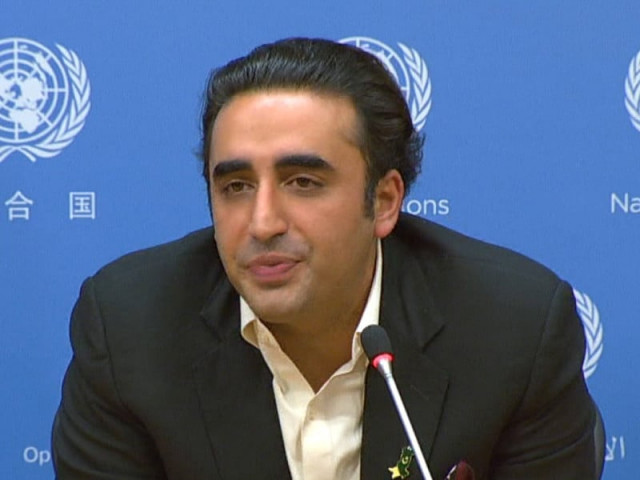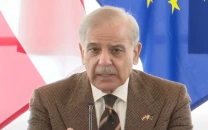Bilawal roots for constitutional court
Says FCC 'critical' to protect democratic govts Stresses equal representation for provinces Critiques judicia

Pakistan Peoples Party (PPP) Chairman Bilawal Bhutto Zardari emphasised on Tuesday the urgent need for reforms in the "fractured" judicial system to ensure that every citizen received the fundamental right to timely justice.
Addressing the Sindh High Court Bar Association (SHCBA), Bilawal reiterated his resolve to establish the constitutional court to ensure that no elected prime minister was ever unjustly hanged again. He stressed that his party stood against any legislation aimed at benefiting or harming an individual.
In his address, according to a press release issued by the Bilawal House Media Cell, the PPP chairman highlighted that under his proposed amendments, the constitutional court would provide equal representation to all provinces, with the position of chief justice rotating among them.
"If the citizens of this country are to receive timely justice, and there is to be no disparity between the provinces, then a federal constitutional court is essential," he said. In the court, he added, "Each province will have equal representation, with the position of chief justice rotating among them."
The PPP chairman reiterated his party's resolve to establish the constitutional court in order to prevent any future prime minister from facing unjust execution and to ensure that justice was served to the people of Pakistan.
He said that the late Zulfikar Ali Bhutto had given the country the gift of the Constitution but that dictators had dismantled it in the blink of an eye. He lamented that judges had allowed dictators to undertake actions that had kept democracy and the Constitution at bay for decades.
He mentioned that Shaheed Benazir Bhutto had signed the Charter of Democracy (CoD) and decided to establish a constitutional court, initiate judicial reforms, and ensure timely justice for the people. He added that, after passing the 18th Constitutional Amendment, they had fulfilled her unfinished mission.
The PPP chief observed that legislation could not happen through courts, "yet judges, through Articles 184 and 186 [of the Constitution], have granted themselves the power" to legislate. He reminded people that 90% of the judiciary's time was spent on political litigation although they constituted only 15% of the total cases.
"If they are serious about providing justice to the public, institutions should be allowed to focus on the work they were established for," he said. He mentioned his party's long struggle against Articles 58(2)(b) and 63(A), which were "used as tools to unconstitutionally dismiss democratic governments".
Bilawal urged the lawyers not to doubt his intentions when it came to the supremacy of the Constitution. He vowed to personally fight for constitutional supremacy, ensuring that all provinces received fair representation.
In response to questions, Bilawal explained that the amendment they introduced to Article 63(A) was meant to ensure that members of parliament followed party's lines on constitutional amendments, the budget, and no-confidence motions, but they still retained the right to cast their vote.
"Neither we, nor any court has the authority, nor should we have it, to force a parliamentarian to strictly follow the party line," Bilawal stated. He added that a vote of no-confidence was a democratic and parliamentary method, and this power lied with parliament, not with a judge or a general.
"We do not want floor-crossing to be easy; we want strict punishment for those who do it," he said about the intent of the amendment to Article 63-A. "When they face the risk that a by-election will be held in their constituency as a result of floor-crossing, they will think carefully before casting their vote.
"If it is declared that a parliamentarian, who crosses the floor will be disqualified for life and their vote will not be counted, it means you are threatening that member you are coercing them into voting under the threat of lifelong disqualification," he added.
The PPP chairman said that constitutional reforms are a new concept for those "whose history begins with the vote of no confidence." He stated that both the current Chief Justice Qazi Faez Isa and senior puisne judge Justice Mansoor Ali Shah were highly respected by him.


















COMMENTS
Comments are moderated and generally will be posted if they are on-topic and not abusive.
For more information, please see our Comments FAQ